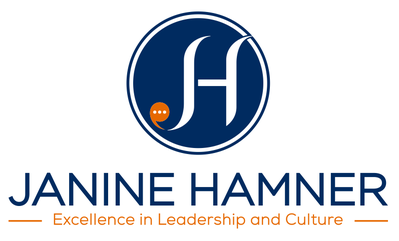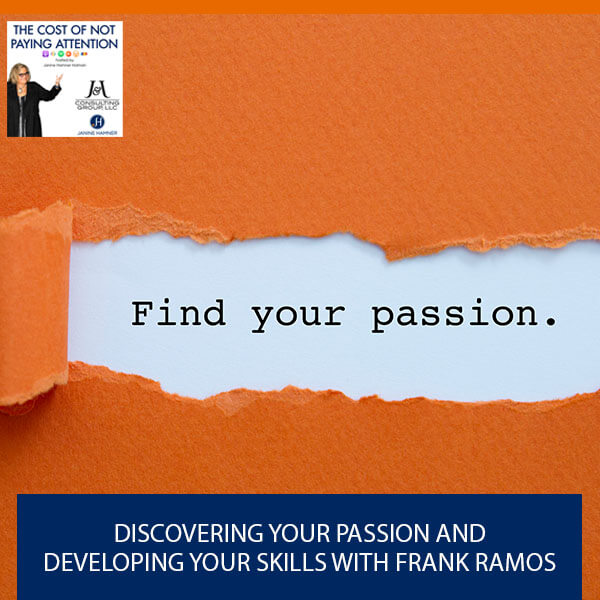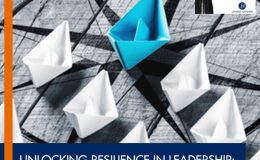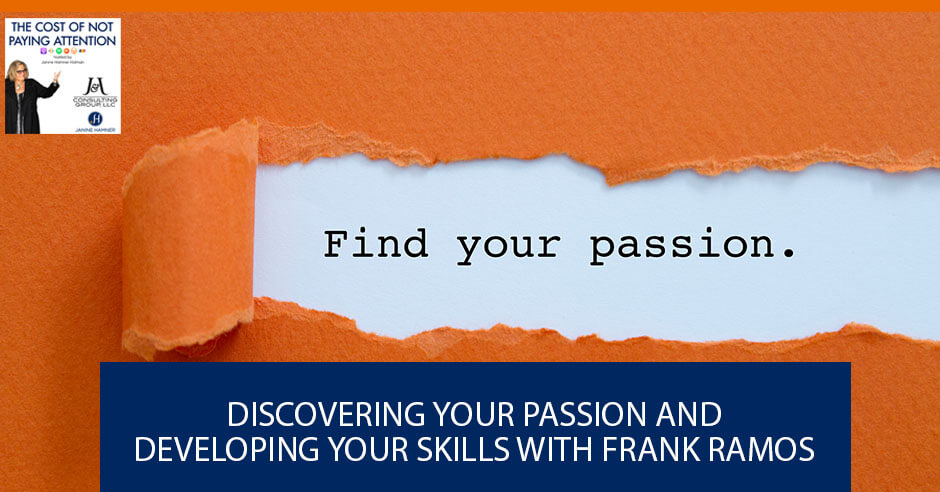
Have you ever wondered what your passion is? Have you ever felt that you aren’t good enough at anything to be truly successful? If so, you’re not alone. Frank Ramos, a keynote speaker and Partner at Clarke Silverglate, used to feel this way. Despite feeling the imposter syndrome and having difficulty with public speaking, Frank took risks and made his way. Today, he talks about finding your passion, developing the skills around that passion, and making your message heard.
GUEST: Frank Ramos | LinkedIn | Visit their Website: Clarke Silverglate
HOST: Janine Hamner Holman | Janine@JandJCG.com | LinkedIn, Facebook, Instagram, and Twitter |
—
Listen to the podcast here
Discovering Your Passion And Developing Your Skills With Frank Ramos
What am I paying attention to now? The road not taken. I don’t know about you all, but when I was a youngster and coming up in the world of work, I did not think I was going to be doing organizational development with companies and making the world of work a place in which people could thrive. That was not my plan.
My first plan was to be an attorney. I had a crazy experience when I was in high school, working for a pre-eminent Harvard Law School professor. I thought, “This is what I want to do.” I’m going to be the youngest tenured professor ever in the history of Harvard Law School and get to take on all these interesting pro bono clients. That’s pretty much a moonshot.
I worked for a couple of big law firms in New York City and thought, “This is not what I want to do,” so I pivoted. One of the things that is great about the story of people’s lives are those twists and turns.
Sometimes a person thinks “I am going to be a dentist,” and then that person goes to dental school, becomes a dentist, and is a dentist for the next 25 or 45 years. Other times, people’s lives turn out completely unlike they planned and there are interesting things that happen along the way. That’s where the juicey bits and pieces are. Today’s guest is someone who is has some experience with those bits. Frank Ramos is a trial attorney from Miami, Florida and is joining us from there. I am happy to say that we’re going to learn a lot more about him today. Welcome, Frank!
Thanks for having me. I appreciate the opportunity.
You’re very welcome. Tell me, what is something you have become aware of that people are not paying attention to, and what’s the cost of that?
What I’ve become aware of, especially during the pandemic, is how short our attention span has gotten. Sometimes, if you don’t get somebody’s attention in three seconds, you’re not going to get it. If the hook point, especially if you’re promoting yourself or your business, doesn’t get somebody right between the eyes immediately, you’re going to lose them. This has a lot to do with our technology, smartphones, and all of the notices and popups.
Between emails, text messages, instant messages, notices from various news agencies, and everything else, we get continual notifications. We probably get notices every 4 or 5 seconds on our phones. Some of us respond immediately. It’s so much coming from many different directions that we’ve learned to easily determine if something is worthy of our attention or not.
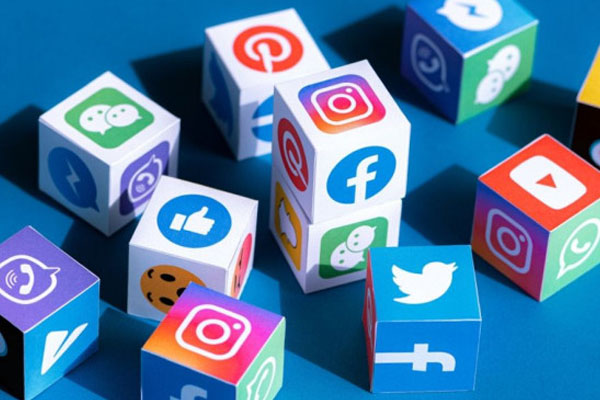
Skill And Passion: Social media is a great place to see what works for you, who you attract, what attention you’re getting, and who’s responding to your message.
Whoever is talking to us, even in casual conversation during dinner or coffee, we immediately pay attention. It’s not something we’re going to change. Telling people to be less condescending, put their phones down, or be more aware is not going to change how we behave. This is not part of our mosaic, infrastructure, nor how we deal with each other. We pretend to be much more aware of it. I don’t think we’re more rude nor impatient, but that’s the way it is now. If we want to cut through the noise, we have to get to the point almost immediately in any conversation and concept.
There was a lot in there. Based on my research, you are exactly right. I saw that our attention span is now less than that of a goldfish, which I find both hysterical and depressing. If that’s all we can stand, and if the amount of time that we have to get somebody interested in what we’re talking about, what lights us up, our marketing, or talking about a nonprofit organization that we’re involved in. Whatever it is that we want to have a conversation with somebody about. If all we have is those first 2 or 3 seconds, A) Yikes, and B) How can we frame? What tips or tools do you have around how we can hook somebody in that short period of time?
It’s always focused on the recipient of the information in terms of what they want or are interested in. Casting a broad net but addressing issues that concern them in language that they relate to and in their context makes the most sense. It is difficult, especially if you’re doing it either through print or visual media.
You have to define who your audience is and whatever message you give. If it’s not to attract everybody, you have to find a way to have your message be both narrow and broad. That’s certainly challenging. These days, the better course is to beta test a lot of different things whether it is through social media or in other contexts, and see what works, resonates, and gets the most response to what you’re trying to say.
Social media is a great place to see what works for you, who you are attracting, what attention you’re getting, and who’s responding to your message. I’m active on LinkedIn, and I post daily, sometimes multiple times a day. With the analytics they share with you certain ad-ons that provide you with more data points. You immediately know what messages are resonating, breaking through, and touching the hearts and minds of the people you’re trying to reach. That’s one way of doing it.
Maybe you’re doing other forms of media groups and meeting people in person. If you are meeting people for coffee or whatever it is, be cognizant of when people are paying attention, what eye contact they’ve made, how engrossed or engaged they are, and how easily they get distracted. That will help you hone your message whenever you’re trying to market and sell yourself or trying to let them know about your products or services.
We want to think about who it is we’re trying to reach and beta test a couple of ideas on social media or another channel. Try a couple of things out, and see what hooks people.
You are a trial attorney. For people who don’t know, what does a trial attorney do?
Life is a lot easier when what people think doesn't bother or affect you. Share on XI do civil defense litigation for companies. We handle litigation here in Miami, and my prospective clients are generally other lawyers or in-house counsel who can refer me matters either here in Florida or elsewhere. They have matters that are being litigated and need someone to defend the company. We tend to handle larger matters.
What I try to do is build a brand online. I’m pushing out my brand and developing a large footprint online. That is primarily through LinkedIn. I do that by posting daily, discussing, giving away a lot of content, and providing a lot of information for free in terms of eBooks, videos, and links to webinars I’ve given. I use that as my hook to get people drawn into who I am and what I do. I have 62,000 followers on the platform. I’ve been posting daily for several years.
I’ve learned because I study the platform. Early on, my posts were longer. They were denser, with a lot less white space, and now my posts have become much more direct, usually a catchphrase or something that gets somebody’s attention. It makes them think. That drops them in the book that makes me ask them to continue reading. I try to say whatever I’m going to say in the most succinct and shortest way possible. LinkedIn has a character limit of 26 characters. If you ever get close to that limit, I’d recommend them to go back to the rule that we have 2 to 3 seconds to get someone’s attention.
People are busy so you want to say enough to get on their radar, stay at the top of mind, and have them remember you when they need someone in your field or geographic region. That’s how I commit at work. A lot of times, I use phraseology, terminology, or ideas I have thrown out that have resonated. If they’ve gone viral, I realized, “This is an important point and an issue. This is something that I’m sharing that people have longed for. I’m going to incorporate that when I make presentations, do my share, or meet people for coffee.” I realized that statement or thought had provoked others and given people something of value. I usually find a way to incorporate that. Find out what works for you and for your audience. What do they want and like? Social media is a great outlet for that, and then using what works there in other mediums, both in person or otherwise.
I know that you also do a lot of mentoring. Tell me a little bit more about that. Why do you like to mentor other people? How do you find the right people who will benefit from your mentorship?
I started mentoring a number of years ago. I had been practicing for several years. Early on in my career, I noticed that a lot of young lawyers have people with whom they could speak and from whom they can get help and assistance. I went through a period in my own career where I felt like I was suffering from Imposter syndrome. I didn’t feel like I knew what I was doing. I started sitting down and writing short-form articles for my own benefit. I had learned a thing or two over the years I’d been practicing, and that caught on. I started getting a lot of feedback from other young lawyers who appreciated that I was trying to provide: simplistic but simple and direct messaging out there. I have done it a couple of times in books and articles.

Skill And Passion: If you can get used to one-to-one conversations with a wide variety of individuals, presenting to a large audience is no different.
I started writing a lot of books. I’ve written over twenty now. Around 2016 I picked that up. That’s when I started posting daily on LinkedIn. I’d been on the platform a dozen times. I didn’t understand the platform at the time. It was more of a resume-sharing site than anything else and still serves that purpose, but it was brilliant to evolve since then.
In those postings, I started developing a following, especially among younger lawyers and law students. A lot of the information I share is advice geared to that audience in terms of how to prepare cases for trial and how to try cases issues in leadership, mentoring, public speaking, writing, and all the facets, soft and hard skills as practicing lawyers.
People started calling me and asking me general questions about their lives, careers, something case-related, and more broad-based questions. I started having people over for coffee. There is a coffee shop across the street from my office called Eastern Bakery. I met people there before my day started. That became a thing. Since then, I’ve developed a rum bar in my office for drinks after hours.
I don’t have a selection process. I open it up and people want to come by. I set up a time. We get together for a half-hour or so. I’m happy to answer any questions they have. The questions they have are large questions about their careers and lives. It’s more than specific case law. We’re not having legal conversations. We’re having larger conversations about all sorts of things.
I think I learn as much from them as I do by myself. I learned how to communicate more effectively. Many of us are afraid of public speaking, getting in front of a large audience, and didn’t get used to having those one-to-one conversations with a wide variety of individuals. Presenting to a large audience is not different. It’s a conversation. You’re doing most of the talking, but you are engaged with the audience. You’re looking and seeing how they’re reacting.
The benefit to me was developing my listening skills, my communication skills, and getting a better appreciation of what people are saying and not saying. I think so much of communication, which makes electronic communication difficult is not sitting across somebody, seeing their body language, eye contact, or lack thereof. Whether they are pointing toward or away from you, your eyes are glancing around, what they are doing with their hands, the tone of their voice and the modulation, the cadence, and all of that.
After a while, you start noticing little things. You can tell when people are being direct, indirect, or open and closed up, the body language, closing themselves off, or opening themselves up to you. I guess I’m almost an amateur psychologist in that sense. That only comes from doing a lot. Have I spent a lot of hours mentoring young people? Sure. I’ve gotten a lot of returns. Whatever you do, pay it forward. There’s always some value that comes back to you.
I want to pick up on when you were talking about your early days as an attorney and this idea of Imposter syndrome. This is one of these phrases that has gained a little bit of popularity. A lot of people are still in the dark about what this is, how it can manifest in us, and what are the ways that we can work to dispel that in a quick 10,000-foot view.
Imposter syndrome is feeling like you’re an impostor. I don’t know if I know what I’m talking about. I’m winging it. It’s that fear that we’re not as good as we think we are, and we’re not as good as we say that we are.
There's no replacement for repetition. Whether you're a lawyer, an accountant, or a salesperson, put yourself out there and keep doing it. Share on XOne of the things that is fascinating about Imposter syndrome is that high-achieving people are much more likely to suffer from it. It is something that cuts across gender, men and women. It doesn’t matter if you are an attorney, a neuroscientist, or a brain surgeon. When I was growing up, people would talk about rocket scientists and brain surgeons as being the upper echelon. Those people suffer from it too.
We can think “If I’m suffering from it, and questioning my worth about being good enough, I must be right.” I wouldn’t think that I’m not good enough if I’m good enough. It’s important to shine a light on it because many people are suffering from it in the dark. Many are suffering from it and do not realize how common it is and how human it is. I love that one of the things that you started doing to overcome that in yourself was writing and blogging. Are there other things that you have done over the years to help get yourself outside of that feeling of fear?
I simply confronted it. We all have a sense that we’re not good enough, we don’t belong, and somehow we’re not quite a fit in our company. Working that goes beyond work but could be our social structure or social strata, whatever organization to create associations or our associations with belonging to our church or synagogue.
Somehow, we’re a square peg round hole. There are two parts of addressing that. One, it’s not caring about what other people think. It’s easy to say that, but once you reach that level of transcendence, it’s almost like the Zen moment where no matter what people say. It doesn’t bother or affect you. Life is a lot easier. It’s easy to make the statement, “Don’t fear.” It’s important to get to that point in your life because, first of all, it’s your life. Who else is living your life? No one is paying bills and staying up at night worrying about what you do or don’t do.
It’s up to you to create some distance and boundaries between you, any detractors, or anybody else who may be thinking of you as a detractor. That could be family, coworkers, relatives, friends, or whomever else, and it’s empowering not to react or turn your power to somebody else. Let them hold the strings and be like a marionette. If you get to the point where you don’t care what people think, you don’t care about belonging or not belonging, whether you’re good or not, because there’s no point of comparison anymore. That’s freeing.
The second point, which is probably more important and practical, is that you need to learn to be okay with sucking at something in the beginning. When I first started writing, and I’ve written a lot, my first articles were pretty bad. I think my first book wasn’t all that great either. It’s the way it is. When I first started speaking, I wanted to projectile vomit. My hands were shaking. I couldn’t even get the words that I wanted, and my mouth was dry. Now, I speak twice a week. It’s part of what I do and stuff I do for work in terms of public speaking and being a keynote speaker. I’m going around, and that comes with getting in front of an audience and doing it.
Whenever you want to do it, there is no replacement for repetition. You’re doing it over and over again. People who are professional basketball players get in, and they’ll shoot hundreds of free throws. People who are baseball players will take hundreds of practice lines. This is the same thing. Whatever you do, do more of it. Put yourself out there and keep doing it.
If there’s a specific skill you need, maybe it is learning how to network, go out and network. The first few times, you’re going to say some dumb things. You may not remember your name or somebody else’s name! Just like anything, you start off not being great but eventually, you’re going to get pretty good at it. You’re going to be able to hold the room and court. People are going to be attracted to you and what you’re saying becomes the center of attention.

Skill And Passion: We don’t grow when things are easy. We grow when things are challenging, when we fail and get back up, and when we push outside our comfort zone and try something new.
At that point in your life, when people are interacting with you, they’re not going to remember how awkward you were several years before. The same people who heard you speak now, if they heard you speak a decade or more ago, they’re not taking note of that speech you gave several years ago. They’re thinking, “It’s a great speech he’s giving now.”
It goes hand in hand with that. A lot of people don’t want to do these things because they don’t want to suck in front of other people but you’re going to suck. That’s the way it is. You have to get past that and keep doing it. At first, you are going to suck a little bit less. Eventually, you’re not going to suck all, and you’ll be good. If you are good, you can be great. People will look at you and assume that you’ve always been great. You must have always been great at whatever it is. The process is one of continual effort, patience, and discipline over time. Eventually, you’ll get to where you want to be.
I love this idea of being okay with sucking. I had the opportunity to be around a little person. She was about eleven months old. She was getting into this understanding of balance and walking. When we start doing anything, we suck at it. She sucks at walking. She falls down and gets right back up. That’s how we are wired. We are wired to be resilient in that way. The older we get, the less interested we are in sucking. There’s an opportunity.
I was talking with a CEO. We were talking about this idea of getting comfortable with being uncomfortable. There’s so much happening in our world, in businesses, and the pace of change is so rapid that it is calling upon us to get comfortable with being uncomfortable, to get okay with the discomfort. We need to be okay with saying the wrong things, cleaning it up, having a little bit more compassion for other people, granting each other some space for falling down, and getting credit for trying.
There is a Theodore Roosevelt speech about The Man in the Arena being willing to get in there, do the work, get down, and keep coming back. That’s our opportunity, whether we’re looking at Imposter syndrome or stretching outside of our comfort zone to be around people who may be different from us, have different ideas than us, or learning how to do something like public speaking.
I remember a Jerry Seinfeld joke about people are more fearful of public speaking than they are of death. It means that if they have to be at a funeral, they’d rather be in the coffin than delivering eulogies. I get to do a keynote speech for the HR conference in California. It’s at a convention center in Anaheim. It’s a big conference. There are all these satellite rooms, and I found out that I’m on the main stage. My first thought was, “I’m on the big girl’s stage.” “My second thought was wahoo.
I think it’s fine for us to have the first response be like, “Oh-oh,” as long as our second response is, “Bring it on.” How can this continue to help me and us with all the things that we are up to creating in the world? As we start thinking about wrapping up our conversation for today, if you had a megaphone and you could say something to the world, what would you love for people to know, think about, or embrace?
You have to define for yourself what you want to pursue and pursue it wholeheartedly. There will always be distractions in your life, but you have to be true to yourself and what you want to pursue. Your distractions might be your significant other or your boss, but you have to be true to yourself. What are you going to pursue in your life? It’s your choice. Whether you’re happy, sad, annoyed, or under the weather, it’s your decision. You can’t blame anybody other than yourself for what you do.
You have to define what you want to pursue and pursue it wholeheartedly. There will always be distractions in your life, but you have to be true to yourself and what you want to pursue. Share on XThere’s nothing sadder than being at the end of your life, looking back and saying, “I should have had that attitude.” Take some risks and chances. It doesn’t mean you’re necessarily going to succeed. You’ll never know if you don’t try. There is some solace in doing something and failing, at least checking that off your list.
You may be surprised, you just might succeed. You will accomplish something. Even in your failures or shortcomings, you will learn more about yourself, which will not only help yourself but you will learn about and help others. Bad things happen to us so that we can help other people through their bad times. Putting your neck out there, taking chances, and failing is not only a learning experience for you, but it helps others go through that experience when it’s their turn to try.
The reality is we, as humans, don’t grow when things are easy. We grow when things are challenging and hard. We grow when we fail and we get back up. We grow when we push outside of our comfort zone and try something new. When you were talking about nothing sadder than dying with regret, it reminded me that Dan Pink has a new book out called Regret.
One of the things that he talks about in that book is the biggest regret that people have. It is something that they didn’t do. Sometimes they did not reach for that thing. They didn’t ask the girl out. They didn’t try that thing. They had an opportunity to mentor that person and they didn’t step up. Those are the things ultimately where we have the most regret in our life, so swing out! Don’t be afraid to suck and keep at it.
Thank you, Frank. This has been a fun conversation. I appreciate your wisdom, insights, and all that you do to mentor folks who are coming up, especially as attorneys, but in all different ways.
If you’re not following Frank, if you’re not connected yet on LinkedIn, go check him out. He’s got some great, interesting, and fun tips.
Thanks again. It’s been great.
You are more than welcome. Remember, great leaders make great teams. Until next time.
Important Links
- Frank Ramos
- LinkedIn – Miami Mentor
- The Man in the Arena
- Regret
- https://www.CSPALaw.com/
About Frank Ramos
 I am a partner at Clarke Silverglate, where I practice in the areas of commercial litigation, drug & medical device, products, and catastrophic personal injury.
I am a partner at Clarke Silverglate, where I practice in the areas of commercial litigation, drug & medical device, products, and catastrophic personal injury.